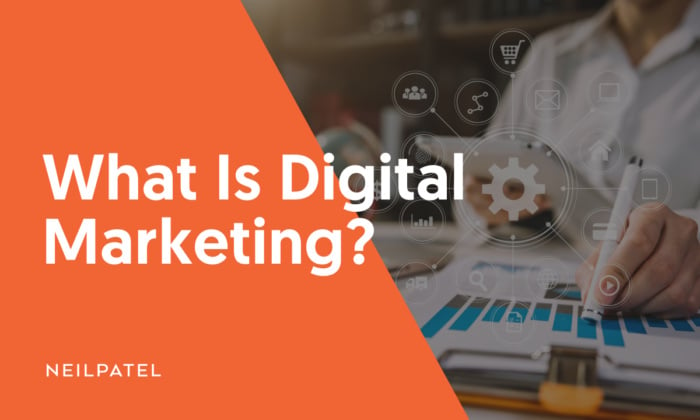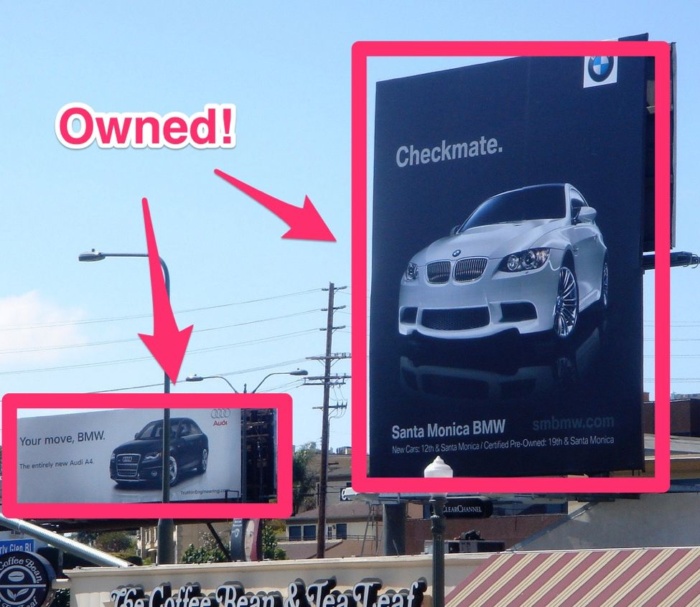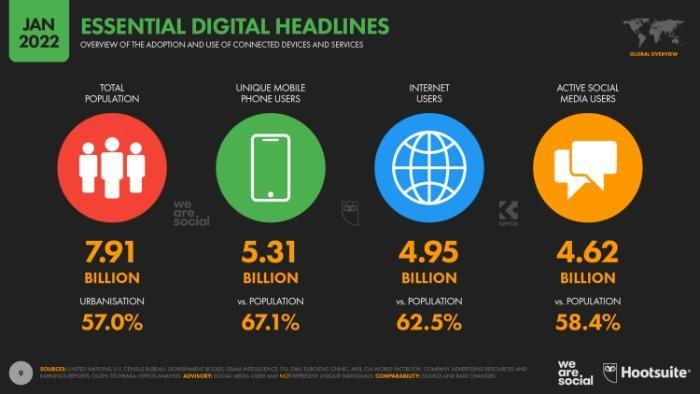What Is Digital Marketing?

What is digital marketing, and why does it matter? That’s precisely what I plan to discuss today.
Digital marketing means using digital channels, like search engines, social media, email, mobile apps, and websites, to promote a product or service. This umbrella term also includes marketing using digital devices such as TV or radio.
Examples of online digital marketing include:
- Search engine optimization (SEO): optimizing a website to improve its visibility and ranking on search engines like Google.
- Pay-per-click advertising (PPC): paying for advertisements to appear on search engine results pages or social media platforms.
- Social media marketing: creating and sharing content on social media platforms like Facebook, Twitter, and Instagram to increase brand awareness and engagement.
- Content marketing: creating and sharing valuable content, such as blog posts, e-books, or videos, thus attracting and retaining a specific audience.
- Leveraging traditional offline media for advertising: using radio and TV marketing, billboard advertising, print, and in-person events.
Analysts predict the global digital advertising and marketing sector will reach $786.2 billion by 2026, with clicks and display ads among the most dominant forms.
Then there’s offline digital marketing like:
- Out-of-Home Advertising: This involves using billboards, transit ads, or other types of visual media to promote your brand or product. This can be a great way to reach a broad audience and create a strong visual impression.
- TV Marketing: where you promote your products in the form as adverts, infomercials, or even demonstrations.
Radio marketing: Trailers and commercials promoting your product to listeners.
In other reports by PR Newswire, digital marketing is worth an estimated $460 billion in the US.
You can do digital marketing online and offline, and using a combination is vital to any well-rounded strategy. These techniques and strategies help businesses to reach their target audience, engage with them, and ultimately convert them into customers.
This guide covers everything you need to know to get started with digital marketing, but first, let’s discuss why it’s so essential to your business.
Why Digital Marketing Matters?
Remember billboards? I do.
As a young kid in California, my experiences from the back seat of our car mostly alternated between: “Mom, when are we there?” and “Uh, look, McDonald’s, can we go?” whenever one of those 10-foot billboards popped up on the side of the road.
Growing up with Indian parents, the answer to both of those would, most times, be the same: “Not yet.”
Sometimes, big brands would even start a billboard war, like this one between Audi and BMW, which got quite a few laughs:

Why Digital marketing important?
Today, most companies have moved to online marketing.
That’s because Google and Facebook generate more revenue than traditional media companies.
Then there is the use of mobile devices.
You can go just about anywhere these days. Whether you are at the grocery store, a restaurant, or even a movie theater, they have one thing in common: you’ll see plenty of people with their eyes practically glued to their phones.
Phone advertisements are like mini billboards, broadcasting adverts whenever we look something up.
Mobile usage is massive, and the figures are only heading upward.

Digital Marketing is the need of future
There are 5.31 billion mobile phone users worldwide, 4.95 billion internet users, and 4.62 billion social media users.
Moreover, the share of people spending more time using electronic devices continues to rise while print advertising declines.
The stats are clear.
Digital marketing isn’t optional if you want to get your product/services in front of customers; your customers are online, and you must be there too.
And don’t go thinking digital marketing is just for the big corps.
Even the smallest local stores can benefit from some form of online advertising. According to Google, 88 percent of people who conduct a local search on their smartphone visit a related store in the next week.
Conclusion
All of this, and I haven’t even gotten to some of the best things about Internet marketing. It:
-
- Provides access to more data: you get access to vital analytics about your customers, how they navigate the buying cycle, and what they want. You can use this data to analyze what works and doesn’t and tailor your strategy accordingly.
- Helps you reach a wider audience: Digital marketing allows you to reach a wider audience than traditional marketing methods. For example, social media platforms like Facebook and Twitter have billions of active users, and advertising can help you target demographics. By 2027, social network users will reach almost six billion. So it’s a platform you can’t ignore.
- Is cost-effective: Digital marketing is more affordable than traditional marketing methods like TV or print advertising. With digital marketing, you can create highly targeted campaigns with a better return on investment (ROI) for your business and reach your goals.
- Provides greater engagement: Digital marketing allows for greater engagement with your target audience. You can use email, social media, and content marketing tactics to keep your audience engaged and interested in your products and services. For instance, creating a blog with valuable content on your website can attract visitors and make them more likely to buy. According to HubSpot, 56 percent of people who read a blog post go on to purchase.
